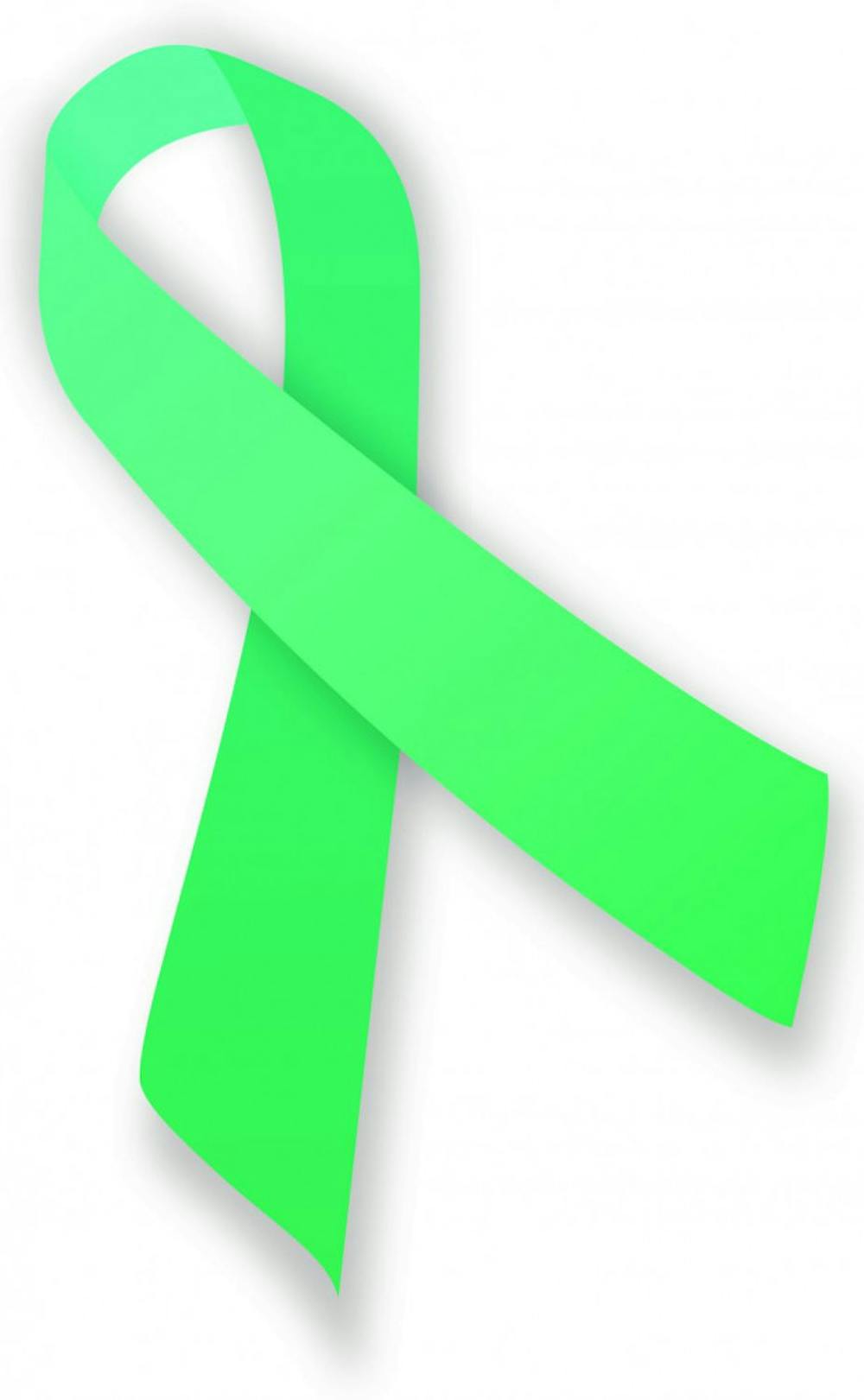This summer was one of the best of my entire life. I was interning full-time at a radio station, taking classes, living in Macon with all my closest friends and truly “adulting” for the first time. But in June, something changed: I found myself completely out of energy, my anxiety spiraled out of control and my hair started falling out. Worst of all, my periods — which have always been long, heavy and unbearably painful — would last two to three weeks at a time.
If you have a uterus, you can imagine how horrible this was.
At the end of July, I made an appointment at Women for Women’s Health in Macon. I suspected that I had endometriosis, a condition causing uterine tissue to grow on the outside of the uterus and on other organs, leading to pain and menstrual complications. A few women in my family have the disease, but I left my doctor’s appointment with a diagnosis of polycystic ovarian syndrome (PCOS) — a condition I’d never heard of.
The major symptoms definitely aligned with what I’d been experiencing: painful periods, extreme fatigue, increased anxiety, hair thinning and pain. The metabolic disease affects between 5 and 10 percent of women, half of whom don’t even know they have it — partially due to a lack of knowledge about the condition, according to the PCOS Awareness Association.
My doctor told me everything I needed to know, but she also told me that it’s common for people to misunderstand PCOS. I spoke to a surgeon who specializes in reproductive surgery, Dr. James Nodler, at the Center for Corrective Reproductive Medicine in Houston, Texas, about the ins and outs of PCOS.
How PCOS affects the body
Unfortunately, as is often the case with women’s health, Nodler said experts aren’t sure what causes PCOS.
“PCOS is kind of a mix of a few different things,” he said. “Women with PCOS typically have higher levels of androgens in their bodies, and androgens are those male hormones like testosterone, and so when they have those higher levels of testosterone, it can cause a couple issues. One is sometimes they have issues with hair growth and acne.”
That hair growth can localize to the face or chest and come along with male-pattern baldness on the scalp. Weight gain, primarily in the lower abdominal region, is also common.
In terms of mental health, PCOS can prompt or worsen anxiety and depression. Nodler said doctors are still trying to determine whether these emotional challenges arise due to hormone imbalances, as reactions to the symptoms or both.
Another major problem associated with elevated androgen levels is infertility. In fact, PCOS is the leading cause of female infertility in the United States. Clinical studies estimate that between 70 and 80 percent of patients struggle to conceive.
Nodler said the disease halts ovulation, the process by which a woman releases an egg every month for it to be fertilized by sperm.
That’s also why folks with PCOS have very infrequent or irregular periods. Sometimes, they have no periods at all for months or even years at a time. Missing periods that often can cause the endometrium, or tissue inside the uterus, to grow too thick. That prompts additional pelvic pain and raises patients’ risk of complications such as uterine cancer.
“When women have higher levels of androgens, it throws off some of the signals from the brain — those are signals we call (follicle-stimulating hormone) and (luteinizing hormone) — and those are two things that make women have cyclic menstrual cycles,” Nodler said.
A history of irregular menstruation is the main diagnostic for PCOS, along with ultrasounds revealing the presence of ovarian cysts and blood tests indicating hormonal imbalances, according to Nodler.
His research focuses on the nutritional elements of PCOS. He said that often, diet can contribute to changes in hormone levels.
“Sometimes, women have worse PCOS or get PCOS at all if they are overweight or obese, so there’s a big nutritional component,” he said. “The reason for that is the fat tissue — the adipose — releases its own androgens. And so when the androgens get released, like the testosterone from the fat tissue, what that does is it kind of throws off the hormones from the brain as well.”
Additionally, most people with PCOS develop resistance to the glucose-processing hormone insulin, causing what Nodler described as a “prediabetes picture.”
“Women with PCOS don’t process blood sugar correctly, so like carbohydrates, things you find in bread, pastas, things like that,” he said. “If they’re not processing carbohydrates correctly, they get more fat storage, and then the symptoms of PCOS get worse, so that’s why sometimes you’ll hear us tell women to work on weight loss and lose some of the fat tissue, because a lot of the times that makes them cycle or ovulate more normally.”
But insulin resistance and other hormonal imbalances can make it difficult to lose or maintain weight, so that’s easier said than done. Plus, diet and exercise won’t help diminish symptoms for patients who are already at a healthy weight. Those women, with what’s called “lean PCOS,” may instead find relief thanks to a diabetes medication called metformin that helps process blood sugar. For those struggling with infertility, metformin can also help promote ovulation by helping regulate insulin.
For PCOS patients without insulin resistance — regardless of their weight — a fertility medicine called letrozole can help as well, according to one of Nodler’s own studies comparing fertility treatments in women with lean PCOS.
Fertility isn’t something I’m worried about right now, and I don’t think it ever will be, but the other symptoms PCOS presents have definitely caused me distress and discomfort for the past ten years. Since middle school, I’ve racked up class absences due to the pain I experience and -- TMI alert -- the fact that I can bleed through a super-size tampon in as little as an hour. That’s shorter than most of my classes.
Looking forward
In middle and high school, there were days when all I could do was lay on the floor and cry. (I know it sounds dramatic, but my mom can vouch for me, I swear.) I started taking a birth control pill when I was 15 to help regulate my period and reduce the pain, and switched to the Nexplanon implant two years later. Nodler said hormonal birth control is one of the first treatments doctors prescribe to PCOS patients, and for me, it’s been extremely helpful until this summer. It’s normal for birth control to lose its effectiveness over time when it comes to period management, so now, I’m taking a hormonal pill while I have my Nexplanon implant. I’ve seen some improvement from the combo already.
But, importantly, birth control is a treatment, not a cure. There is no cure for PCOS, which is one reason why Congress federally designated September 2019 as PCOS Awareness Month.
According to PCOS Challenge, a national organization raising awareness for and supporting research of the disease, “the aim of PCOS Awareness Month is to help improve the lives of those affected by PCOS and to help them to overcome their symptoms as well as prevent and reduce their risks for life-threatening related diseases, such as diabetes, cardiovascular disease, nonalcoholic fatty liver disease and cancer.”
The latter part of their mission presented a sobering realization for me. It means that my condition could morph into something worse if I don’t take care of myself and manage my symptoms effectively. I’ve always been the kind of person who avoids going to the doctor unless I’ve got a sky-high fever or if I have something I can more easily identify, like the flu. I just want to walk into the doc’s office, get any medicine I might need and go home without causing a fuss. But getting diagnosed with a disease I never knew existed — and one so universally misunderstood — taught me just how important it is to trust my body when it’s telling me that something is wrong and to take my health seriously enough to talk about it, openly and unapologetically.





